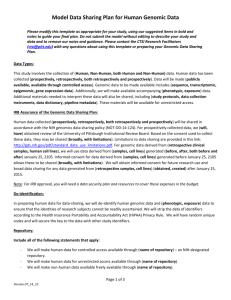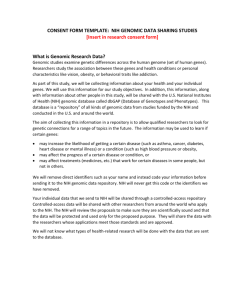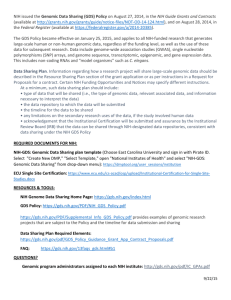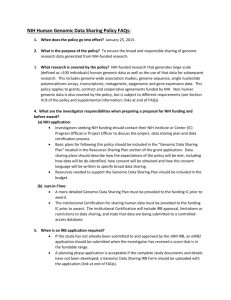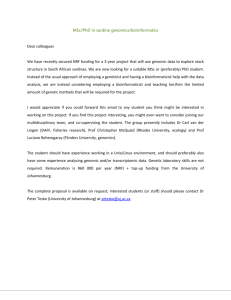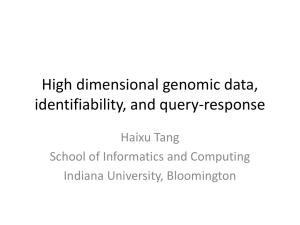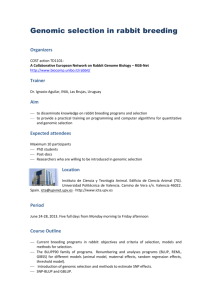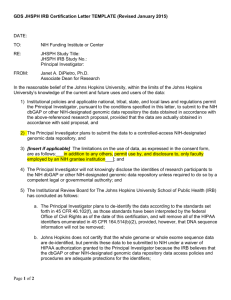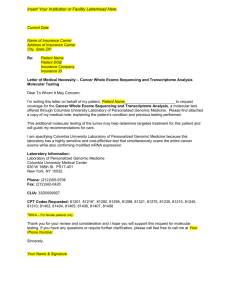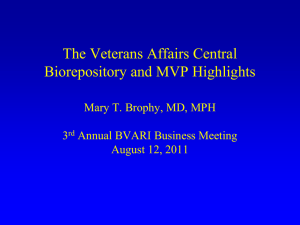Key Points of the NIH Genomic Data Sharing Policy
advertisement
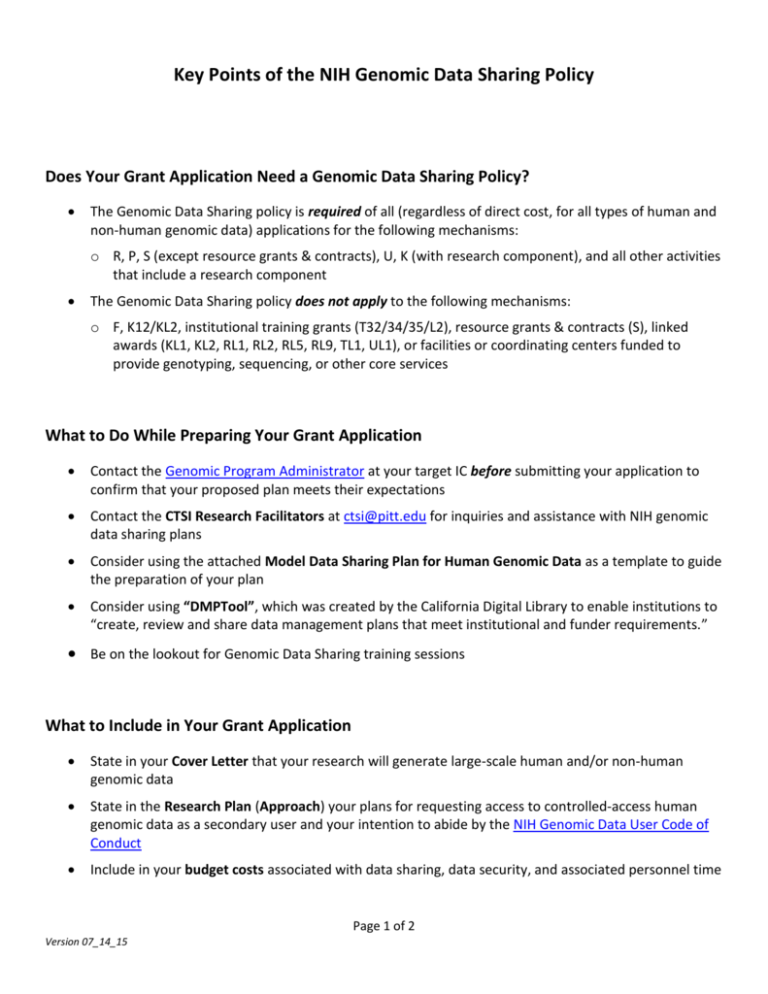
Key Points of the NIH Genomic Data Sharing Policy Does Your Grant Application Need a Genomic Data Sharing Policy? The Genomic Data Sharing policy is required of all (regardless of direct cost, for all types of human and non-human genomic data) applications for the following mechanisms: o R, P, S (except resource grants & contracts), U, K (with research component), and all other activities that include a research component The Genomic Data Sharing policy does not apply to the following mechanisms: o F, K12/KL2, institutional training grants (T32/34/35/L2), resource grants & contracts (S), linked awards (KL1, KL2, RL1, RL2, RL5, RL9, TL1, UL1), or facilities or coordinating centers funded to provide genotyping, sequencing, or other core services What to Do While Preparing Your Grant Application Contact the Genomic Program Administrator at your target IC before submitting your application to confirm that your proposed plan meets their expectations Contact the CTSI Research Facilitators at ctsi@pitt.edu for inquiries and assistance with NIH genomic data sharing plans Consider using the attached Model Data Sharing Plan for Human Genomic Data as a template to guide the preparation of your plan Consider using “DMPTool”, which was created by the California Digital Library to enable institutions to “create, review and share data management plans that meet institutional and funder requirements.” Be on the lookout for Genomic Data Sharing training sessions What to Include in Your Grant Application State in your Cover Letter that your research will generate large-scale human and/or non-human genomic data State in the Research Plan (Approach) your plans for requesting access to controlled-access human genomic data as a secondary user and your intention to abide by the NIH Genomic Data User Code of Conduct Include in your budget costs associated with data sharing, data security, and associated personnel time Page 1 of 2 Version 07_14_15 What to Do for Just-in-Time (JIT) Obtain Institutional Certification for human genomic data as part of the Just-in-Time process. Open an IRB submission through OSIRIS (www.osiris.pitt.edu) which should include 1) the detailed data sharing plan, 2) a draft informed consent document indicating whether participants’ individual-level data will be shared through unrestricted or controlled access repositories (see recommendations for language at http://www.genome.gov/27559024); 3) any known data use limitations; and 4) an indication of whether any aggregate level data are appropriate for general research use (https://dbgap.ncbi.nlm.nih.gov/aa/wga.cgi?view_pdf&stacc=phs000688.v1.p1). Responses regarding the above items 1, 3, and 4 should be placed in Section 5.8 of the OSIRIS application, and the draft consent document should be uploaded into Section 4.9. o Complete the “Application to Submit University of Pittsburgh Data to an NIH-Designated Data Repository” document available on the IRB website: www.irb.pitt.edu. The completed form should be uploaded in the OSIRIS application under “Other Attachments.” The IRB will conduct a review and provide a signed “Genomic Data Sharing IRB Data Submission Affirmation.” It is important to note that, depending on the complexity of the project as well as the number of consent documents, this review may take up to two weeks to complete. o After the review, the IRB will provide an IRB Affirmation which should be submitted to the Grants and Contracts Officer assigned to your area in the Office of Research who will provide the official Certification for data submission. Be prepared to elaborate and to provide a full data sharing plan as part of the JIT process For More Guidance Genomic Data Sharing Policy – http://gds.nih.gov/PDF/NIH_GDS_Policy.pdf Supplemental Information to the NIH Genomic Data Sharing Policy http://gds.nih.gov/PDF/Supplemental_Info_GDS_Policy.pdf Guidance for Investigators -http://gds.nih.gov/pdf/NIH_guidance_developing_GDS_plans.pdf Page 2 of 2 Version 07_14_15

